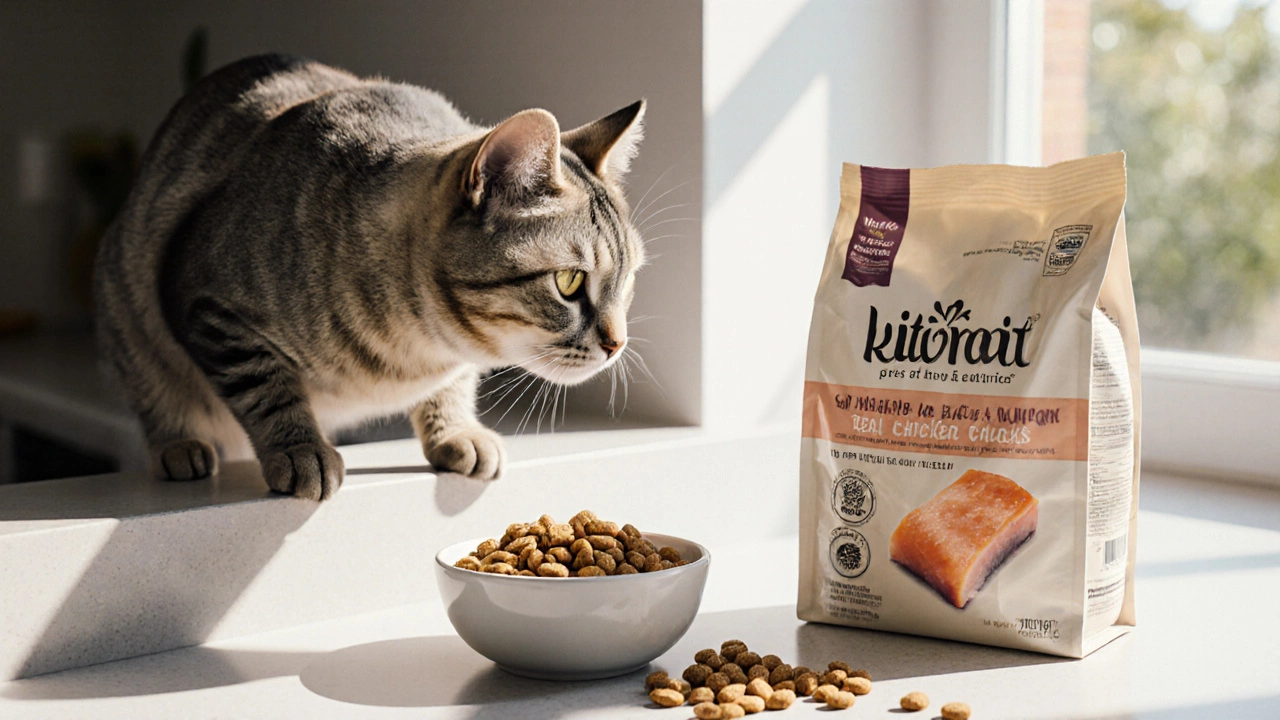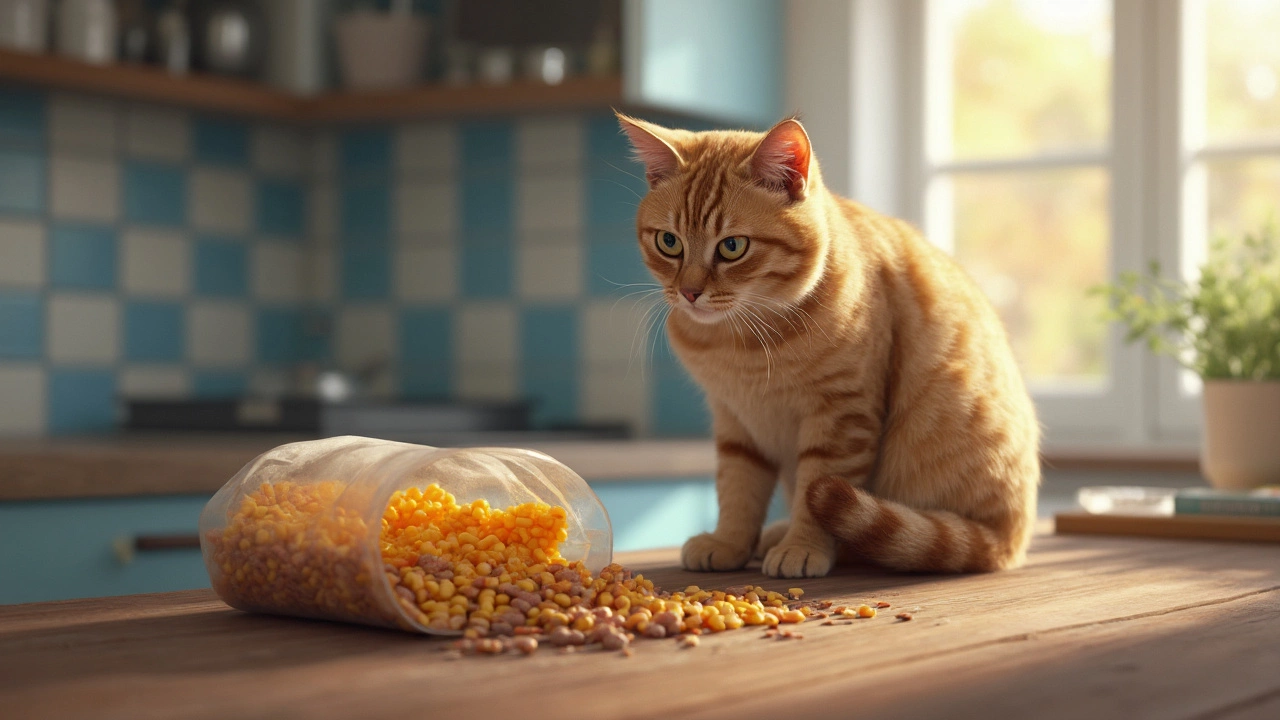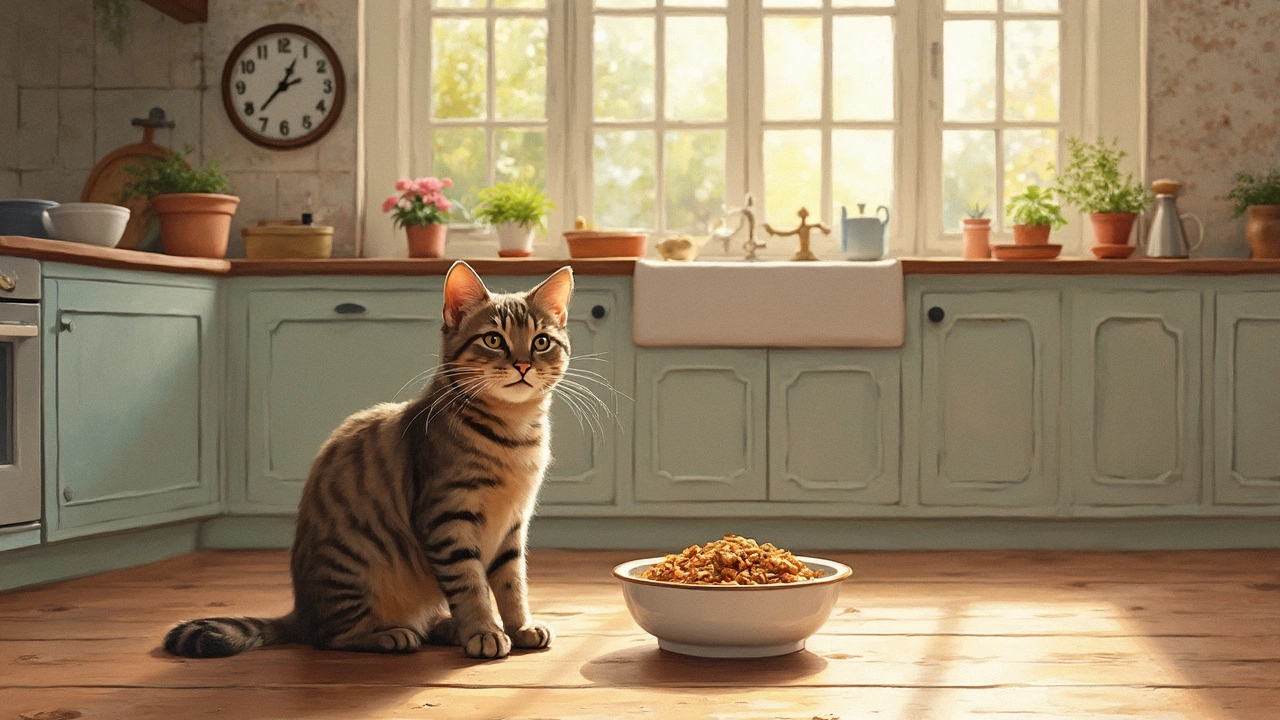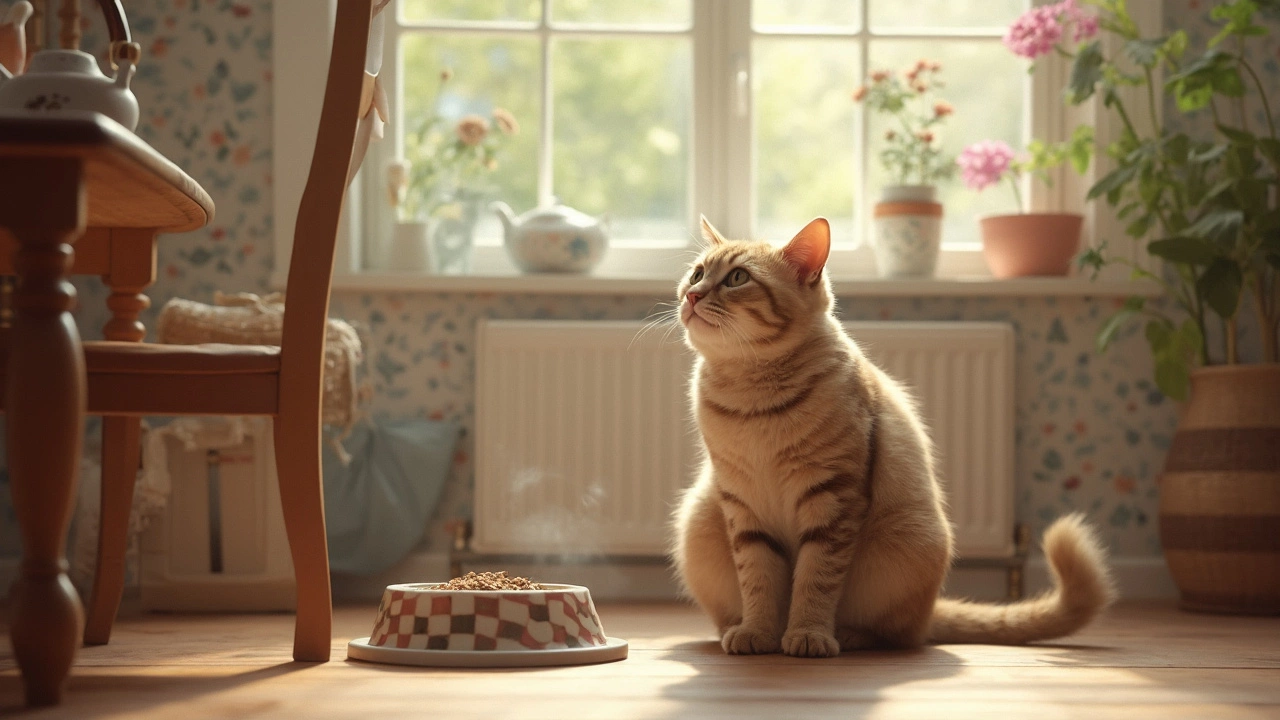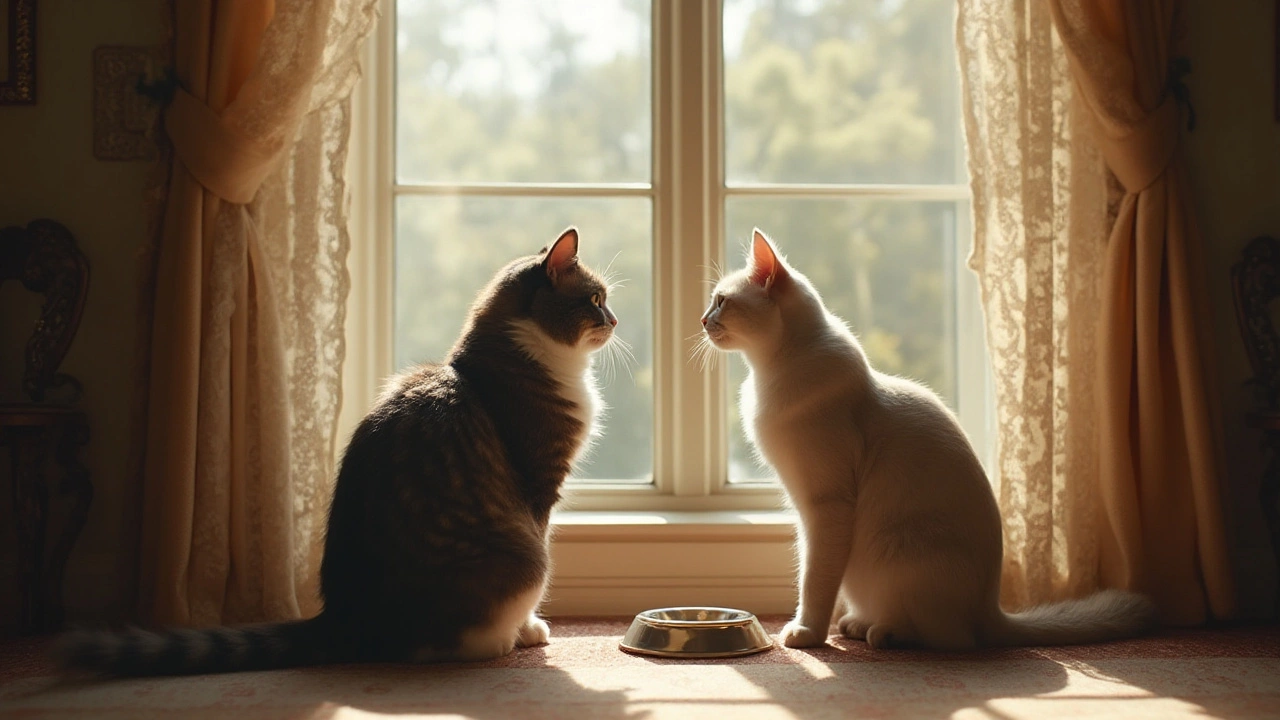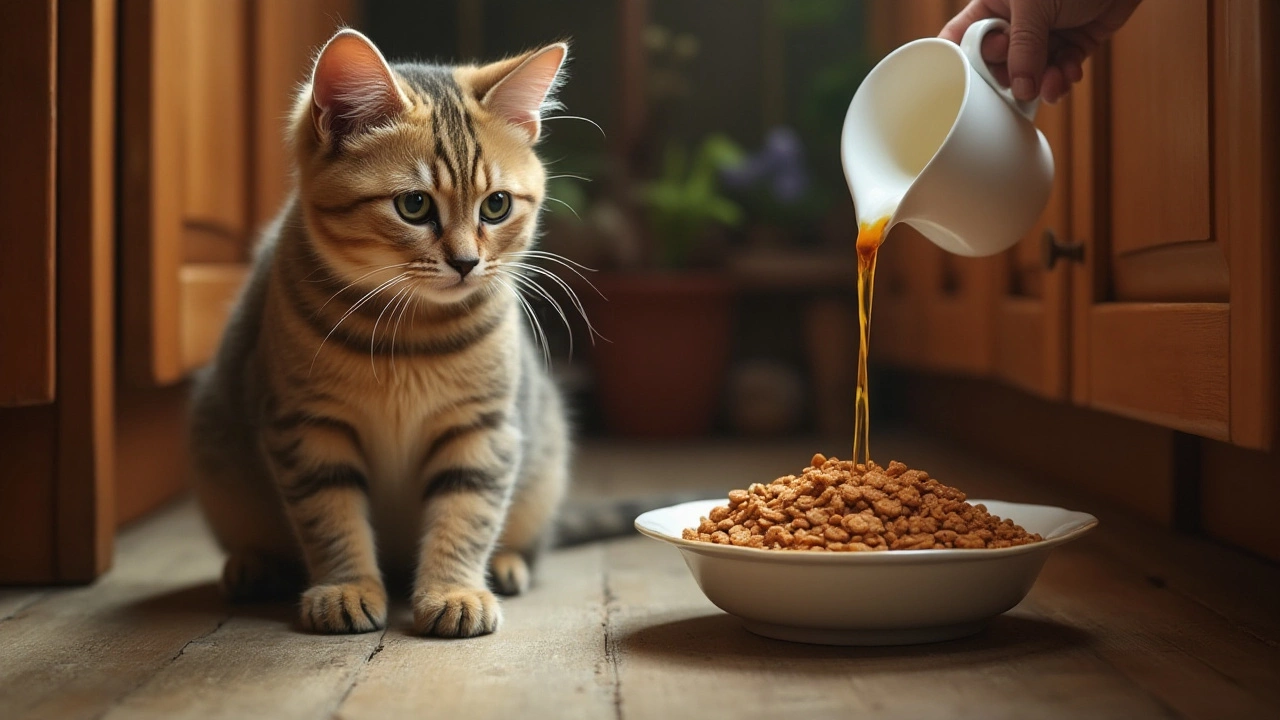Cat Diet Basics: What Every Owner Should Know
If you’ve ever watched your cat stare at your plate, you know they think they deserve a taste. The truth is, feeding a cat isn’t about sharing your dinner – it’s about giving the right nutrients in the right amounts. A good cat diet keeps your buddy lean, active, and free from common health issues.
How Often Should You Feed Your Cat?
Most adult cats do well on two meals a day, spaced about 12 hours apart. Kittens, on the other hand, need three to four smaller meals because their growing bodies burn energy fast. If you’re new to feeding schedules, start with a morning and evening feeding, then adjust if your cat seems hungry or leaves food untouched.
Watch your cat’s weight. A cat that’s gaining a few pounds in a month might need smaller portions or a shift to a lower‑calorie brand. Conversely, a thin cat that’s losing weight could benefit from a higher‑calorie formula or an extra snack.
Choosing the Right Food for Your Cat
Look for a label that lists a high‑quality protein source, like chicken or fish, as the first ingredient. Cats are obligate carnivores, so they need animal protein to thrive. Avoid foods that rely heavily on fillers such as corn or wheat – those add calories without real nutrition.
If your cat has a health issue, talk to your vet about a therapeutic diet. Many brands offer grain‑free, limited‑ingredient, or weight‑control formulas that can help with allergies, kidney health, or obesity.
Don’t forget about hydration. Wet food adds moisture, which is crucial because many cats don’t drink enough water. A mix of wet and dry kibble gives the benefits of both texture and hydration.
Portion sizing can be tricky. Most packages include a feeding guide based on weight, but it’s just a starting point. Adjust the amount based on your cat’s activity level and body condition. A handy trick is to use a kitchen scale for the first few weeks – it helps you see exactly how much you’re giving.
Keep an eye on eating habits. Cats are natural grazers and might nibble throughout the day if you leave food out. While free‑feeding can work for some cats, it often leads to over‑eating. If you notice your cat is constantly begging for more, try timed meals and a puzzle feeder to slow down eating.
Finally, treat your cat responsibly. Small pieces of cooked chicken or freeze‑dried bites are fine occasionally, but they shouldn’t replace a balanced diet. Too many treats can quickly add up to extra calories.
By setting a consistent schedule, picking a high‑protein food, and watching portion sizes, you give your cat the best chance at a long, healthy life. Remember, every cat is unique, so tweak the plan as you learn what works for yours. Happy feeding!
- Morgan Ainsworth
- 0 Comments
Can Cats Survive on Dry Food Only? A Complete Guide
Discover if cats can live on dry food only, learn essential nutrients, choose quality kibble, and manage hydration for a healthy feline diet.
View More- Morgan Ainsworth
- 0 Comments
Dry Cat Food: What Ingredients Should You Avoid?
Dry cat food might line store shelves, but not every crunchy kibble is great for your cat. Some common ingredients in dry cat food can upset your feline's health in the long run. This article breaks down what’s really inside those bags and what you should keep an eye out for. You’ll get practical tips so you can spot problems before your cat does. If you want your cat to live healthier and longer, start with what goes in their bowl.
View More- Morgan Ainsworth
- 0 Comments
How Often Should You Feed Your Cat Daily?
Feeding your cat the right amount and at the right times is crucial for their health. Cats are creatures of habit and require consistency in their feeding routines. This article will explore how often you should feed your cat each day, tips for balancing their diet, and the role of your cat's age and lifestyle in determining their feeding schedule.
View More- Morgan Ainsworth
- 0 Comments
How Often Should You Be Feeding Your Cat Each Day?
Figuring out the right feeding schedule for your cat can be challenging. This article explores how many times a day you should feed your feline friend, considering their age, health, and lifestyle. We offer practical tips for ensuring your cat gets the right amount of food without overeating. Learn the importance of monitoring your pet's weight and consulting your vet for personalized advice. Discover the significance of a consistent feeding routine and how to adapt it as your cat grows or experiences health changes.
View More- Morgan Ainsworth
- 0 Comments
Signs Your Cat is Hungry and Tips for Choosing the Right Cat Food
Recognizing hunger in cats can sometimes be challenging due to their unique communication style. This article delves into common behavioral cues that indicate a cat is hungry and provides tips on selecting the best cat food. Learn how to differentiate between hunger and other behaviors. Explore the importance of nutrition for cats. Understanding these aspects can lead to healthier and happier cats.
View More- Morgan Ainsworth
- 0 Comments
Enhancing Cat Diet: Adding Moisture to Dry Food
Dry cat food often lacks the moisture cats need for optimal hydration. Adding moisture enhances the flavor and improves hydration, which is crucial for cats' health. Simple additions like bone broth, water, or chicken broth can work wonders, and they also provide extra nutrients. It's important to maintain the right balance to cater to your feline friend's dietary needs.
View More
